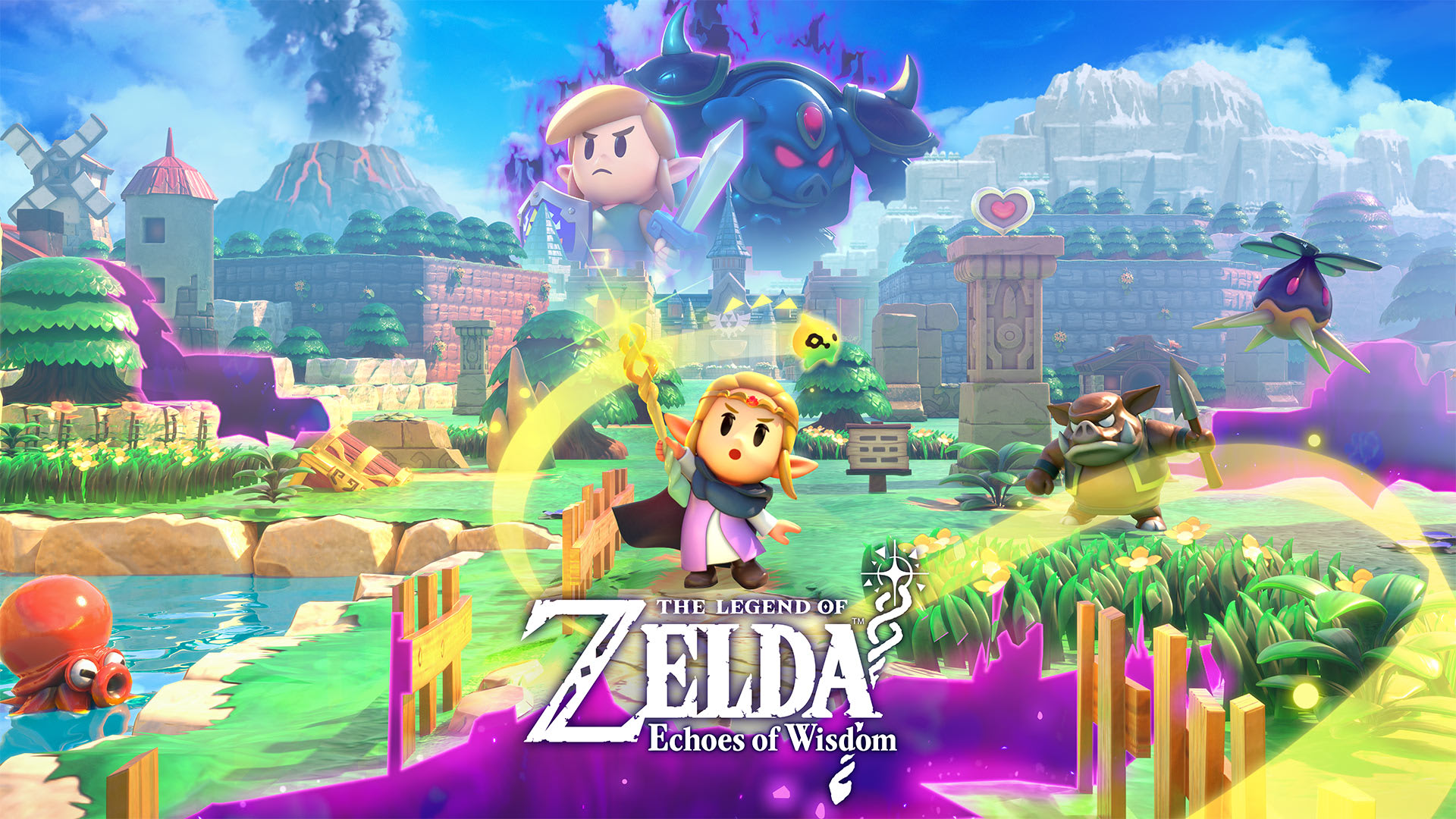A year ago, a rather peculiar adventure began. Not one spanning vast, uncharted continents, nor delving into subterranean abysses, but one that dared to scale back. The Legend of Zelda: Echoes of Wisdom, which celebrates its one-year anniversary today, September 26, 2025, wasn`t about simply expanding upon its gargantuan predecessors. Instead, it ingeniously condensed their revolutionary spirit into a delightful, compact package, redefining what “bigness” truly means in the realm of interactive entertainment.
From Expansive Frontiers to Ingenious Intricacy
Before Echoes of Wisdom, the gaming world was still reeling from the sheer scale of The Legend of Zelda: Breath of the Wild (2017) and its successor, Tears of the Kingdom (2023). These titles obliterated traditional linear progression, casting players into breathtakingly vast Hyrulean landscapes, daring them to forge their own paths, build fantastical contraptions, and discover secrets tucked into every nook and cranny. The industry, ever eager to chase the next big trend, seemed convinced that “more” and “larger” were the undisputed hallmarks of innovation.
Then came Echoes of Wisdom, a game that, at first glance, appeared to whisper, “Perhaps not.” Developed by Grezzo, a long-time Nintendo collaborator known for revitalizing classic Zelda experiences, this entry adopted a charming, top-down, diorama-like aesthetic reminiscent of the beloved Link`s Awakening remake. Yet, beneath its whimsical, toy-like tilt-shift perspective lay a core philosophy that felt as revolutionary as scaling Hyrule Castle from any direction.

Zelda`s Echoes: The Power of Ingenuity
The most striking departure wasn`t just the visual style or the smaller world. It was the protagonist herself: Princess Zelda, stepping into the limelight as the sole playable character in a mainline title. Eschewing Link`s traditional sword-and-shield combat, Zelda wields the enigmatic Echo Rod. This ingenious device allows her to record the properties of objects and creatures, then recreate them at will. Need to cross a perilous gap? Echo a rock, or perhaps a bed, and manifest a makeshift bridge. Faced with a formidable foe? Capture its essence and unleash it against its brethren. Combat, in a refreshing twist, becomes less about brute force and more about strategic puzzle-solving.
This mechanic isn`t merely a gimmick; it’s a brilliant distillation of the sandbox freedom that defined Breath of the Wild and Tears of the Kingdom. Where Link might have fused disparate elements to craft unique solutions, Zelda collects and redeploys echoes. The result is an experience where the game doesn`t dictate a solution, but rather invites players to invent their own. As series producer Eiji Aonuma articulated, the goal was to foster “independent thinking” and “the excitement of solving puzzles in your own unique way.” This design philosophy champions ingenuity, making every triumph feel uniquely earned.
The Art of Respecting Player Time (and Attention Spans)
One of Echoes of Wisdom`s understated triumphs is its pacing. In an era where many games demand hundreds of hours of commitment, this Zelda iteration respects the player`s time. Its challenges are often bite-sized, perfectly suited for quick gaming sessions on the Nintendo Switch. This isn`t to say the game lacks depth; rather, it offers concentrated bursts of discovery and problem-solving. It`s a testament to the idea that a fulfilling adventure doesn`t need to sprawl across dozens of square miles to feel profound.
This approach highlights a crucial lesson for the industry: true freedom in gaming isn`t measured by the sheer acreage of a map, but by the breadth of options presented to the player within that space. Can the player truly manipulate their environment? Can they improvise solutions? Do their choices genuinely matter? Echoes of Wisdom answers with a resounding “yes,” proving that a smaller canvas can, in fact, provide a larger stage for player agency.
A Legacy Echoing Innovation
As The Legend of Zelda: Echoes of Wisdom marks its first anniversary, its impact resonates beyond its charming visuals and clever mechanics. It stands as a powerful rebuttal to the relentless pursuit of scale in game development. It’s a reminder that sometimes, the most innovative step forward is a deliberate step back in size, allowing core design principles like player freedom and creative problem-solving to shine even brighter.
Nintendo and Grezzo have demonstrated that the wonder of exploring a world and bending it to one`s will isn`t confined to epic open-world sagas. Whether you`re fusing a rocket to a shield in Tears of the Kingdom or conjuring a chain of beds to reach a hidden treasure in Echoes of Wisdom, the exhilarating sensation of pure, unadulterated freedom remains gloriously the same. And that, in itself, is a wisdom worth echoing.

